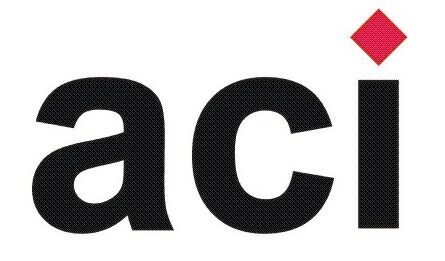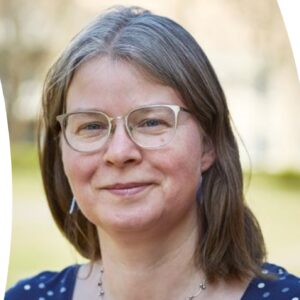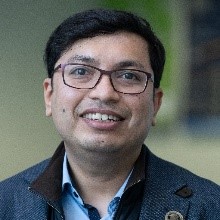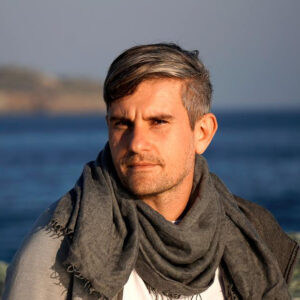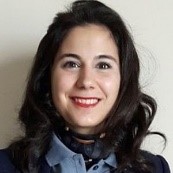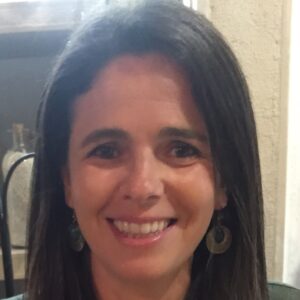Below are the ECGBL Biographies of the Conference and Programme Chairs, Key Note Speakers and Mini-Track Chairs.
Conference and Programme Chairs
Dr. Kristine Kilså graduated from the Dept. of Chemistry at University of Copenhagen and continued her research while obtaining a PhD degree in Physical Chemistry at Chalmers University of Technology in Sweden. After a long career in academia, bringing her from California to Copenhagen, she dedicated her career to education at the Swedish University of Agricultural Sciences, as the Head of Education and Management Support, as well as being the Coordinating Director of Studies and Assistant Faculty Director. As of 2020, she has the strategic responsibility for education at the Faculty of Natural Sciences at Aarhus University, as the Vice Dean for Education.
Dr. Rajiv Vaid Basaiawmoit graduated from the Dept. of Biotechnology at Madurai Kamaraj University in India and then completed his PhD in Biophysics from the Dept. of Biotechnology at Aalborg University in Denmark. He has been at Aarhus University since 2008 doing a series of post-doctoral stints at the Department of Nanoscience and then a business degree (MBA) from the Business School at Aarhus University. Combining his science and business knowledge he has been teaching entrepreneurship, especially to science and technology students since 2013. Since 2016 he joined the Faculty of Science & Technology and has continued his role as Sci-Tech Head of Innovation and Entrepreneurship where he designs and embeds entrepreneurship into science courses at a master’s level across various disciplines. As an award-winning educator, Rajiv has pioneered the use of games in entrepreneurship education and is a big proponent of game-based learning in the higher ed space
Key Note Speakers
Pietro Michelucci is the director of the Human Computation Institute, an innovation center that develops crowd-powered systems to address societal problems. He is founding editor of the journal Human Computation. Michelucci received a joint-PhD in cognitive science and mathematical psychology from Indiana University and spent ten years advising federal research agencies on Artificial Intelligence. He currently leads several citizen science projects, including Stall Catchers, which engage 60,000+ public volunteers to tackle Alzheimer's disease, related dementias, and stroke. Michelucci has appeared on PBS, Science Friday, BBC World Service, and been covered by the Wired, Fast Company, and MIT Technology Review.
Mini Track Chairs
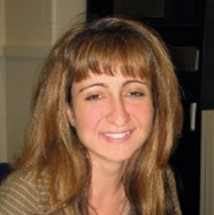
Stavroula Andreopoulos is a Professor, Teaching Stream, in the Department of Biochemistry at the University of Toronto. In 2017, she was recognized by the Temerty Faculty of Medicine for her multi-year contribution to undergraduate teaching with the Sustained Excellence and Innovation in Life Sciences Education Award. More recently (2023), she was awarded the provincial Ontario Confederation of University Faculty Associations (OCUFA) Teaching Award of Distinction.
Dr Panagiotis Fotaris, Principal Lecturer at the University of Brighton, UK, specialises in Game, Narrative, and User Experience Design. As a seasoned educator and researcher deeply passionate about game-based learning, Dr Fotaris champions the pedagogic potential of escape rooms, generative AI, and immersive technology in higher education. His diverse background, fusing computing with arts, games, and music, enhances his innovative teaching methodologies. Leading projects on educational escape rooms for cybersecurity awareness and information literacy, Dr Fotaris is at the forefront of shaping a future marked by immersive and impactful game-based learning experiences.
Nour El Mawas is a Full professor at Université de Lorraine and CREM Laboratory (Pixel team). Her research is in the Technology Enhanced Learning (TEL) Field. She coordinates with J.M. Gilliot the “TEL for lifelong learning” working group supported by ATIEF and is also member of Ikigai scientific committee. The Ikigai consortium gathers operators in education, cultural mediation and research aiming at revitalizing teaching and mediation through gamification. It builds and distributes educative games, provides large scale usage datasets and is involved in the development of new digital data interoperability standards in education, essential for assisting learners throughout their life.
Sónia Pais, PhD in Education, is an Associate Professor at the Polytechnic of Leiria. She is a researcher at CiTUR - Centre for Tourism Research, Development and Innovation. Her research interests are in educational sphere, including how best to teach math subjects. She has interest in Mathematical Education, Educational Technology, Pedagogical Innovation and Game Based Learning.
Workshop Facilitators

Luuk Collou finalized his PhD in 2020 at the University of Twente during which he developed and tested a simulation model and serious game for strategic human resource management (HRM). Currently Luuk is working as an associate lector for the research group strategic HRM of Saxion University for applied Sciences in Enschede, the Netherlands. In addition to his work for Saxion university, Luuk is employed as managing consultant research & data at BMC/Randstad.
Guido Bruinsma With a background in work- and organizational psychology Guido finished his Ph.D. at the University of Twente on a simulation model on the orchestration of complex multi-organization collaborative work. Building on his passion for research methodology, technology and human behavior Guido's research focusses on the development and implementation process of gamebased interventions (serious games) and the development of health, performance, and data driven systems for esports performance enhancement. Guido was one of the founders of the esportslab at the University of Twente and Gamelaboost in the municipality of Enschede. Guido furthermore is involved in several startups and organizations in the field of organizational improvement, applied gaming, and esports.
Ton Spil teaches in the area of Business Information Systems for MBA and Management of Risk Management and Business and IT. He did his PhD thesis on the effectiveness of information strategies and after that he specialized in the application area healthcare and professional organizations. He is track chair e-health in main conferences and published on ISI A level. He was (guest) editor of JSIS and associate editor of several health journals. In 2017 his main topics are adoption of IT, business modeling, serious gaming and digital strategies applied on (tele) health, music and banking. He creates digital strategies for (social) media & health.
